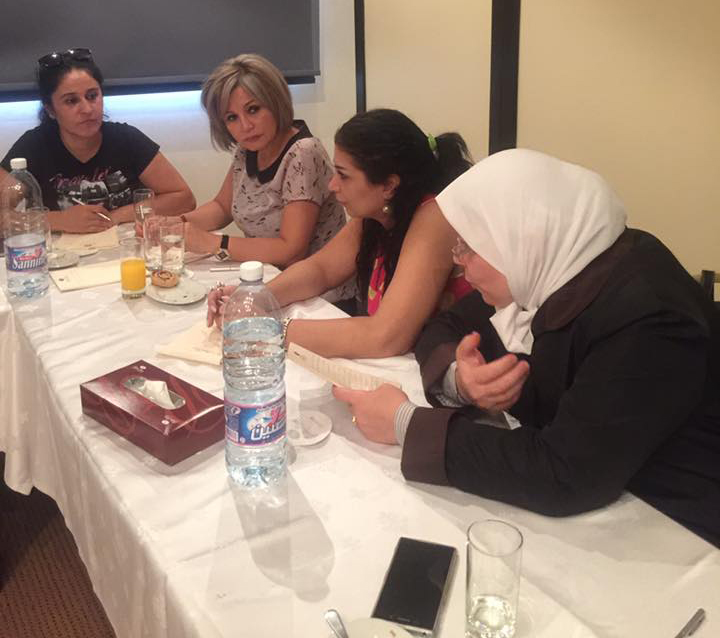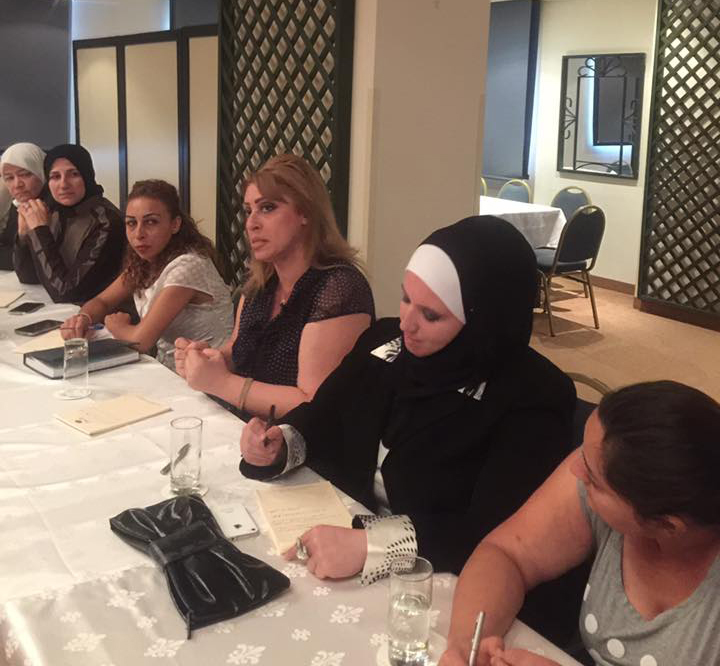Syrian women come together to unify their vision for the future of Syria
Women from across Syrian society met in Beirut this week to discuss the role women must play in building a peaceful future for Syria. The event was organised by the Syrian Women’s Forum for Peace, which brought the group of 22 women from different political, religious and social backgrounds together for the two-day workshop.
The event took Martin Luther King’s iconic “I have a dream” speech as its inspiration, asking participants to consider their own hopes and aspirations for the future of their country. All the women taking part have been deeply affected by the ongoing conflict in Syria, with representatives coming from Damascus, Aleppo, Latakia, Deir ez-Zor and Hasaka. The group used a variety of interactive methods, including role playing and storytelling, to exchange experiences and build a picture of how women can be better prepared for greater participation in public life.
While the destruction the war has caused across Syria has been well-publicised, the workshop highlighted the damage it has done more deeply to Syrian society. Despite these divisions, the participants hoped that the workshop would send a positive message that women from across Syria’s political, religious and ethnic divides could still come together to unify their vision for the future of Syria.
The participants were particularly keen to discuss how women could become more involved not just in politics, but in public life more generally. While the group did include politically and socially active participants and NGO leaders, it was also attended by professionals, academics and representatives from the private sector who were not politically aligned or involved in community leadership. The whole group discussed what was necessary for Syrian politics and public life to become more inclusive and gender-sensitive.
Facilitated by Dr Mouna Ghanem and Dr Hisham Kiyat and supported by regional NGO Karama, the discussion was also concerned with how politics could be more inclusive of the marginalised and harder to reach sections of Syrian society. Participants agreed that that there was much needed to follow-up on from the workshop, with capacity-building and training sessions high on the agenda.
Dr Mouna Ghanem, founder of the Syrian Women’s Forum for Peace and co-facilitator of the workshop, said:
“If we are to build a peaceful future for Syria, women will need to play a leading role. This workshop has provided us with an opportunity to understand how that can happen. The war has not only devastated our country, but it has debased our political discourse. Fixing this will be no easier than rebuilding our cities, but as the workshop shows, dialogue is still possible across political, religious and social lines. We are still all Syrian women, we want a Syrian agenda for women's participation.
“Our discussions have shown how that might be possible. Central to this will be building a critical mass of women's participation across Syrian society. Women’s empowerment will not come through women being represented here and there, but through women in leadership roles across the board.”
Hibaaq Osman, CEO and founder of Karama, which supported the workshop said:
“This workshop demonstrates that women experiencing the appalling conflict can come together for a better Syria. These women have seen the devastating effect of the war. The women and children of Syria are paying the highest price for this conflict. They have come together from different religious backgrounds, different communities, across the political spectrum to talk about their hopes and aspirations for Syria. That should serve as an inspiration for the powers within Syria and the international community to come together to bring about peace in the country. These women and many more within and without Syria need the support of the international community now more than ever.”



